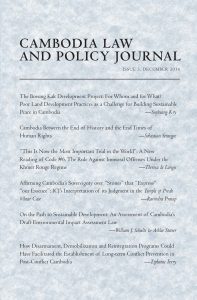The Boeung Kak Development Project: For Whom and For What? Poor Land Development Practices as a Challenge for Building Sustainable Peace in Cambodia
Download PDF: English Using the Boeung Kak Lake development project (BKDP) as a case study, this paper explores how poor land development practices in Cambodia impede



